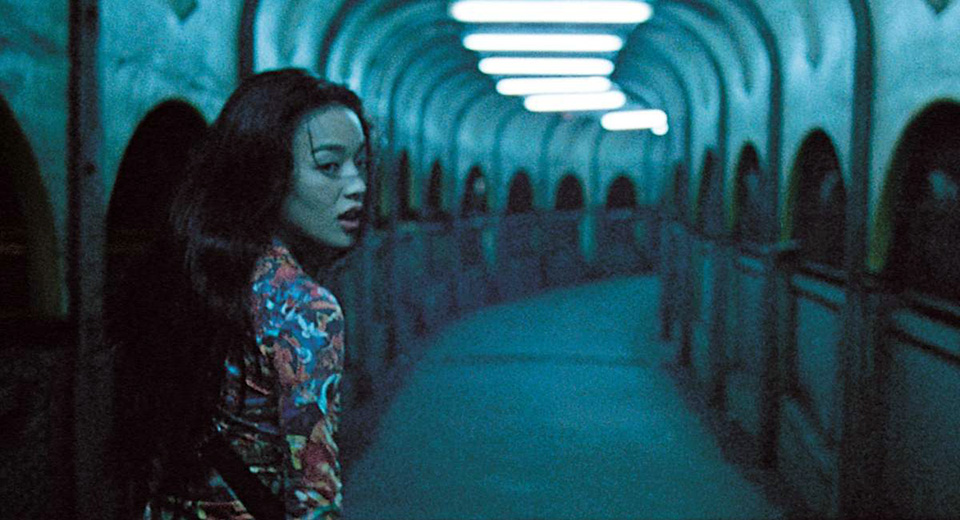
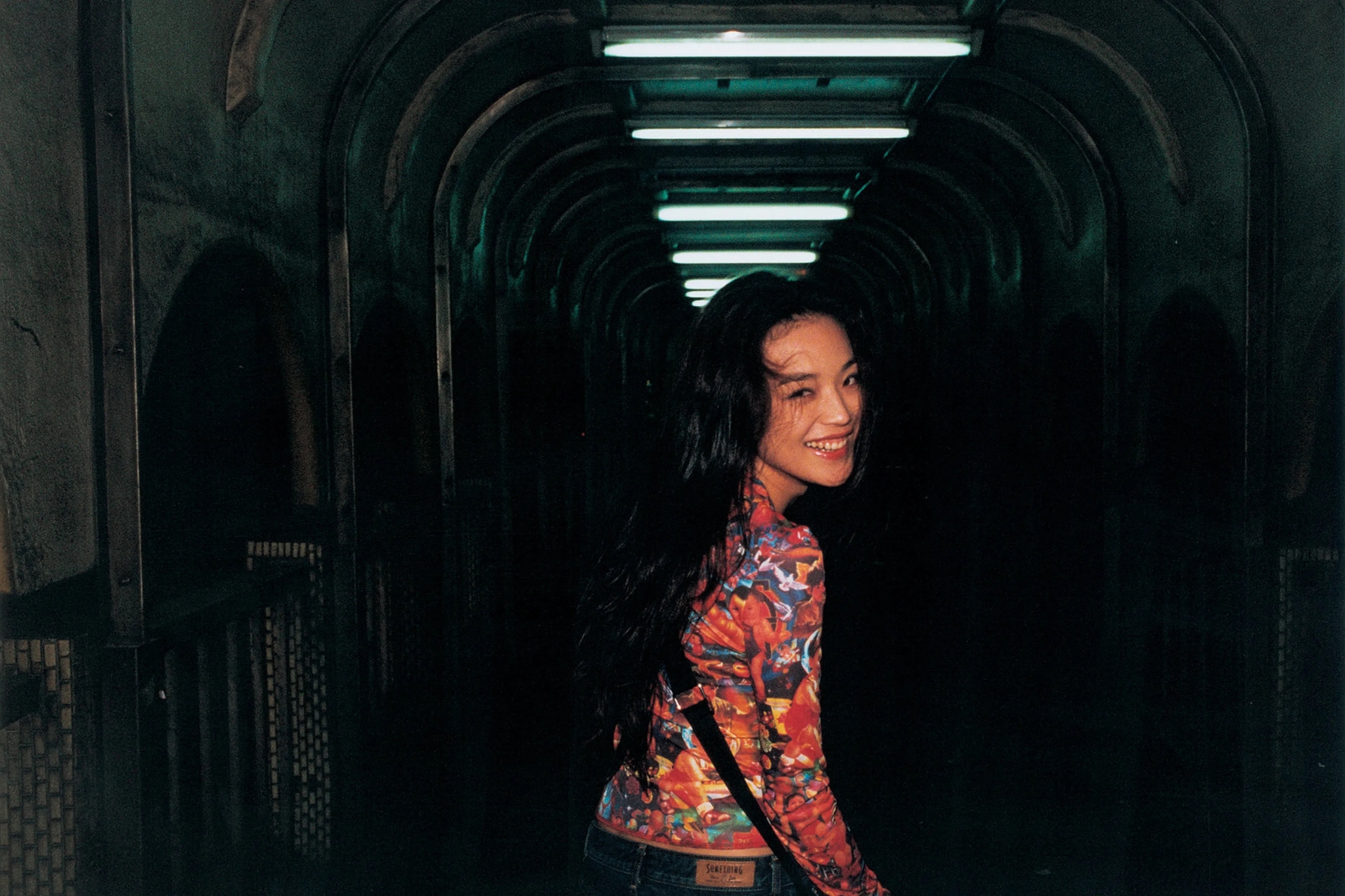
It’s impossible to forget the first time you see Shu Qi on screen.
My first brush with the Hong Kong-Taiwanese actress, an indisputable icon of Asian cinema, was in Hou Hsiao-hsien’s bittersweet portrait of youthful alienation, Millennium Mambo (2001), which opens with Qi—framed in slow motion and bathed in electric blue—skipping carelessly down an empty overpass. Backed by a pulsing score by Lim Giong, every so often Qi glances back at us—her silent spectators—and with a smile beckons us to follow. At the tunnel’s end, she pauses to take a carefree drag of her cigarette, then bounds down the stairs—out of focus, out of frame, into the night.
It’s as perfect an opening as movies have to offer, and its power hinges almost entirely on Qi, whose screen presence is so spellbinding that you feel immediately—and helplessly—compelled to follow her from scene to scene until the screen cuts to black and the credits roll.
Qi first made a name for herself starring in Hong Kong Category III films Sex and Zen II (1996) and Viva Erotica (1996), before graduating into the mainstream with box office hits like Gorgeous (1999)—opposite Jackie Chan—and The Transporter (2002), with Jason Statham, in her first major international role. Her career evolved into more prestigious territory through (but not limited to) her multiple collaborations with legendary Taiwanese New Wave director Hsiao-hsien, who took her under his wing as muse and pupil, and challenged her to push herself into bold new territory on screen. Now, decades after their first film together, Qi is stepping behind the camera herself, putting into practice the lessons that were passed down to her by Hsiao-hsien.
“Mr. Hou is like a father to me,” she says, speaking with A Rabbit’s Foot at the Venice Film Festival, where she’s premiering her directorial debut, Girl (2025). “I had never thought about directing before. I was talking with Hou outside a studio about 13 years ago—we were waiting for the gaffer—and he brought it up: ‘Why don’t you try directing something?’ I thought, ‘I’m trying to be an actress, why are you bringing up directing?’ [laughs] But he encouraged me to start with something I knew. When he made A Time to Live, A Time to Die (1985), it was based on his own childhood. So I began writing my screenplay. It took me 10 years.”
Set in Keelung in 1988, Girl tells the story of a turbulent relationship between a shy adolescent, Hsiao-lee (Bai Xiao-Ying), and her mother, Ajuan (9m88), as they endure the tyranny of the family patriarch—a violent alcoholic, played by Roy Chiu. “The film touches on family abuse,” says Qi. “But what was most important to me was to capture the nature of trauma—how it wounds us in ways that may heal, but still leave scars we carry for the rest of our lives.”
Qi is joined by her lead actress, singer 9m88 (pronounced jo-em-baba), a staple of Taiwan’s contemporary jazz and neo-soul scene, and a true genre-hopper—though, she clarifies, she doesn’t rap. “But you can try,” Qi jokes.
I tell 9m88 that I once spent a long summer in Taipei with her debut LP Beyond Mediocrity (2019) on repeat. Now three albums and an EP in, she’s turned her creative energy toward acting—and is relishing the challenge. “Performing music and acting are under the same bigger umbrella of performing arts,” she tells me, reflecting on her role in Girl. “They support each other. But acting is more intense—you have to hyperfocus on your scene partner’s reaction and respond in a split second. As a musician, I approach everything in choreography: one, two, three. But as an actor, you have to let it flow. You have to let the character’s soul live inside you, all the while doing a dance with the other actors as well.”
We sat down with director Shu Qi to discuss her transition from acting to directing, her formative collaborations with Hou Hsiao-hsien, and the making of Girl.
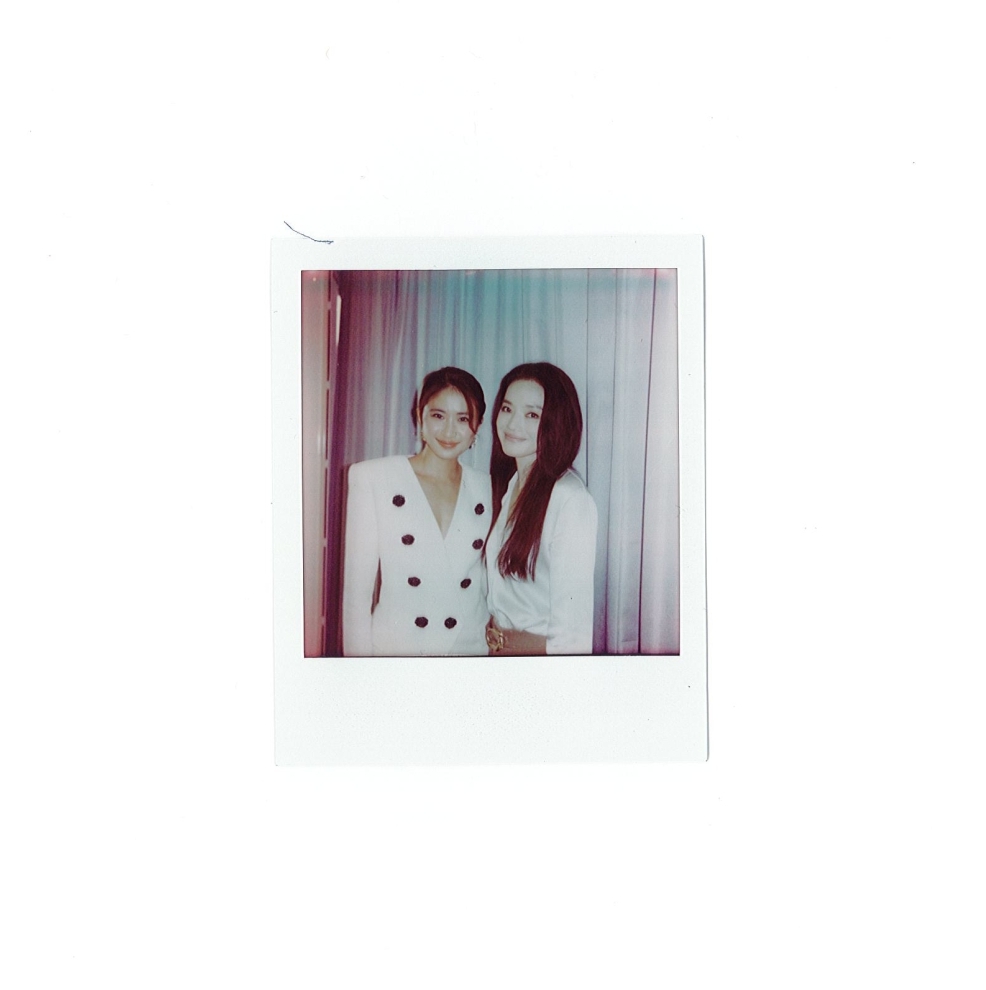
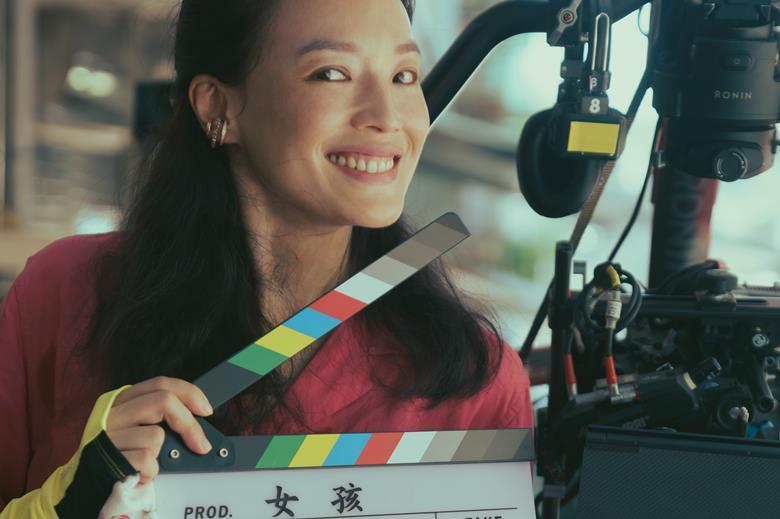
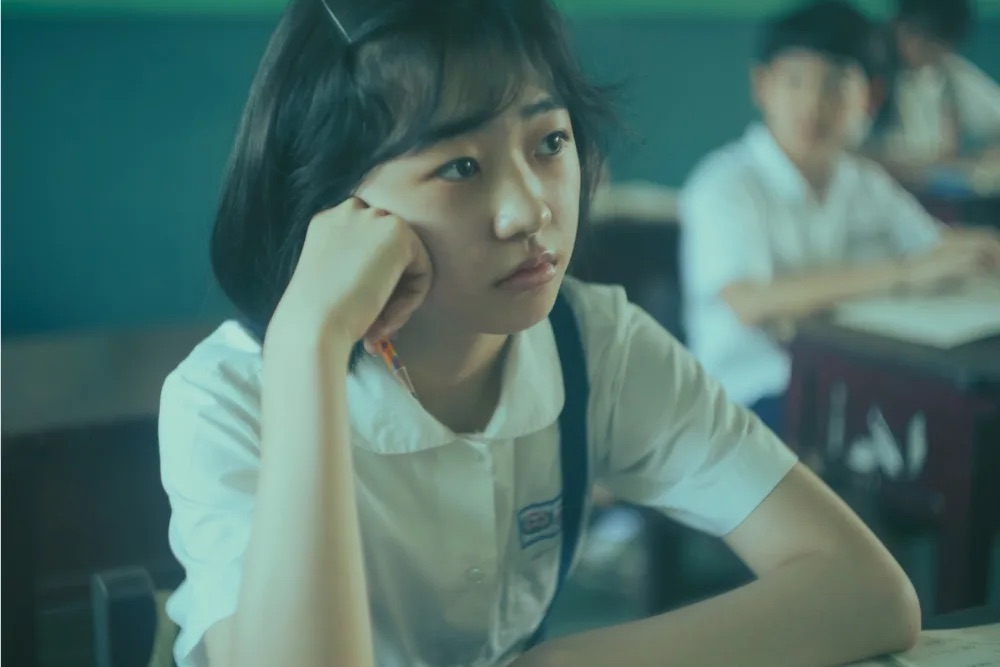
Luke Georgiades: What was the greatest lesson you took from working with director Hou for all those years?
Shu Qi: Mr. Hou is like a father to me. He always asked me to challenge myself. In the first movie we worked on, Millennium Mambo, he didn’t know much about me, so he was always trying to test my abilities—to find where my limits were. It took him six months to understand how I worked. In the second movie, Three Times, it was even more challenging: I had to interpret three different stages of life in three different historical periods, but with the same soul inside each character. The third movie we worked on [The Assassin] was even more difficult: he asked me to play an assassin with a murderous look but without emotions. He always said the real martial artist experts can kill people in three moves. He asked me to do it in one. I practised the motion of jumping and delivering a single killing blow thousands of times on a trampoline. My leg ached a lot [laughs]. As an actress, he asked me to challenge myself continuously.
LG: And as a director?
SQ: I’ll tell you another anecdote. During the Millennium Mambo shoot there was one scene we shot five or six times over a series of days. Every other day he would shoot the same thing. I didn’t understand why, and one day I came to him and asked if I was doing something wrong. He said, “no, there’s nothing wrong with you. It’s me. There’s something I still haven’t figured out. Don’t think about performing or acting…just be the role. If there’s something wrong, it’s me.” I always used this to make fun of directors [laughs], but now, as a director who is responsible for the outcome of this movie, those words have taken new meaning. But I feel relieved now that the premiere and the response to the movie was warm.
LG: How did the story change from conception to the final product?
SQ: Like Director Hou and A Time to Live & A Time to Die, I started by writing a story that spoke to my experiences with my own family, so it was easier for me to complete the work and communicate to the actors about those experiences. But once we were on set, things changed. At the beginning, around 80% were based on my own experiences, but when we began working with the actors, I realised that they were all forming their own relationships with their characters, and we had to adjust the story accordingly. At the end of the film, about 30% was my own experience, and the other 70% was something new that as a team we all brought to the table.
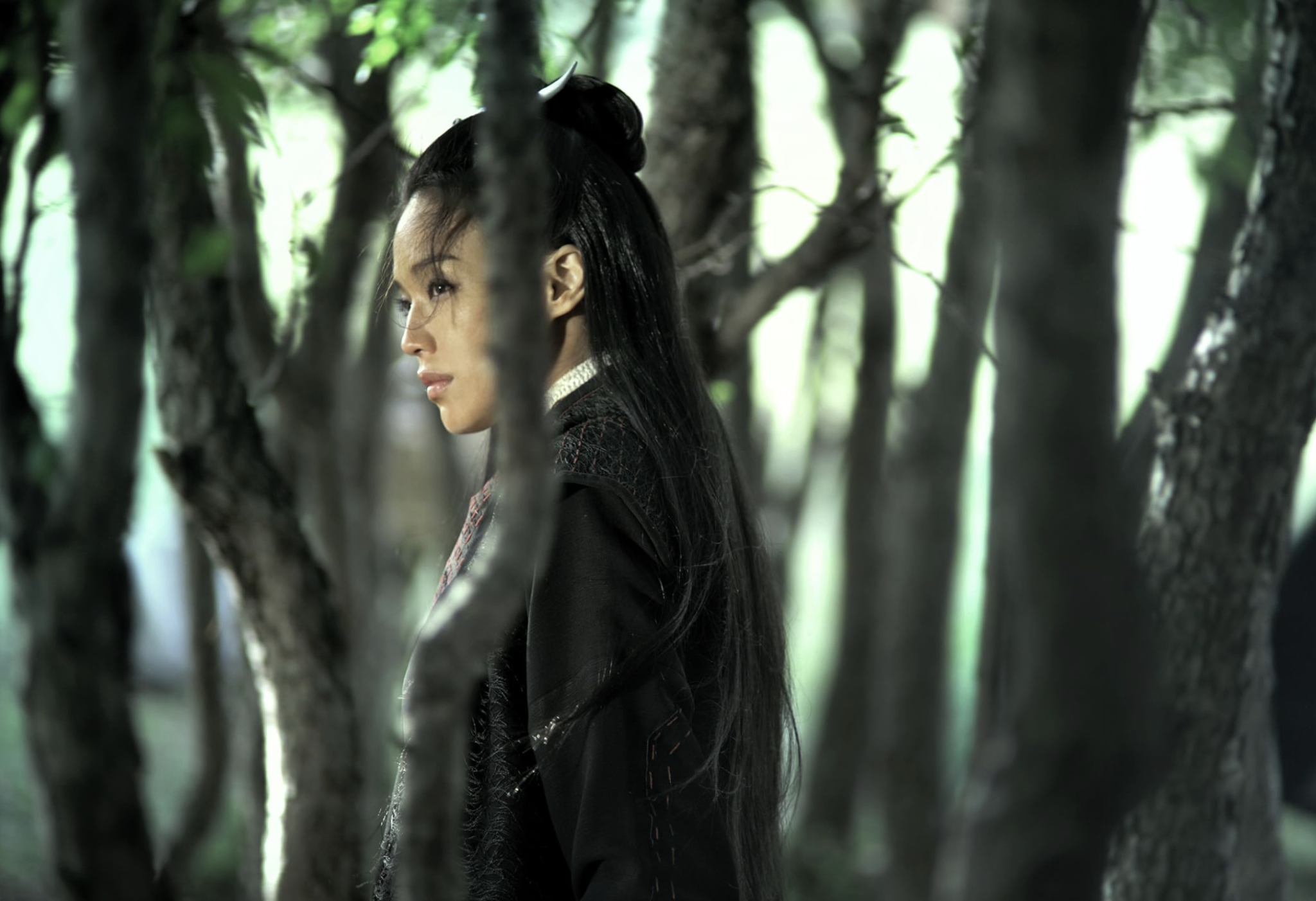
“[Director Hou Hsiao-hsien] always said the real martial artist experts can kill people in three moves. He asked me to do it in one. I practised the motion of jumping and delivering a single killing blow thousands of times on a trampoline.”
- Shu Qi on working with Hou Hsiao-hsien on The Assassin (2015).
LG: Are you more interested in the visual aspect of filmmaking or the storytelling?
SQ: I have to admit I’m quite satisfied with my storytelling ability, because I wrote it all myself and spent a lot of time trying to figure out how I wanted to tell the story. The film touches on family abuse, but what was most important to me was to capture the nature of trauma—how it wounds us in ways that may heal, but still leave scars we carry for the rest of our lives. It can impact our choices, our ways of living. I also didn’t want to present family abuse as simply the beating and physical abuse of children. I want to express the abusive relationship between the father and child using sound. We put gadgets and keys on the father so that they would make noise when he came home. We worked on the sound of his motorcycle as he pulled up outside the apartment. I wanted to create the sense of fear that abuse creates—how even an unseen indication of the abusers presence, often through everyday noises, can make the victim fear more.
LG: You tasked your actors with achieving intense performances here, which they do wonderfully.
SQ: I owe all my thanks to them. When we were casting, I first chose Roy [Chiu] as the father, because I wanted to get someone good looking, without a scary face, to create a contrast between his appearance and his abusive actions. I didn’t expect him to accept [laughs] I couldn’t believe that. I admire him for his courage to take on such a role. I also worked with the art director at length to establish an ambience in the apartment that would encourage the actors to operate inside the movie the moment they stepped on set. It was challenging for 9m88, an excellent contemporary singer and actress, to play a traditional mother. She asked me, “why doesn’t she just leave? Why doesn’t she escape?” I told her to step into the shoes of the generation of her own mother, so many decades earlier, with a different cultural background. Hsiao-lee is a lovely girl. I was always afraid that the role would leave trauma with her after the film wrapped. But at the halfway point, I knew she’d be okay, and I knew I didn’t have to explain the character to her anymore. When she stood in front of the camera, she was ready to go. I’m grateful for having a cast like this.





